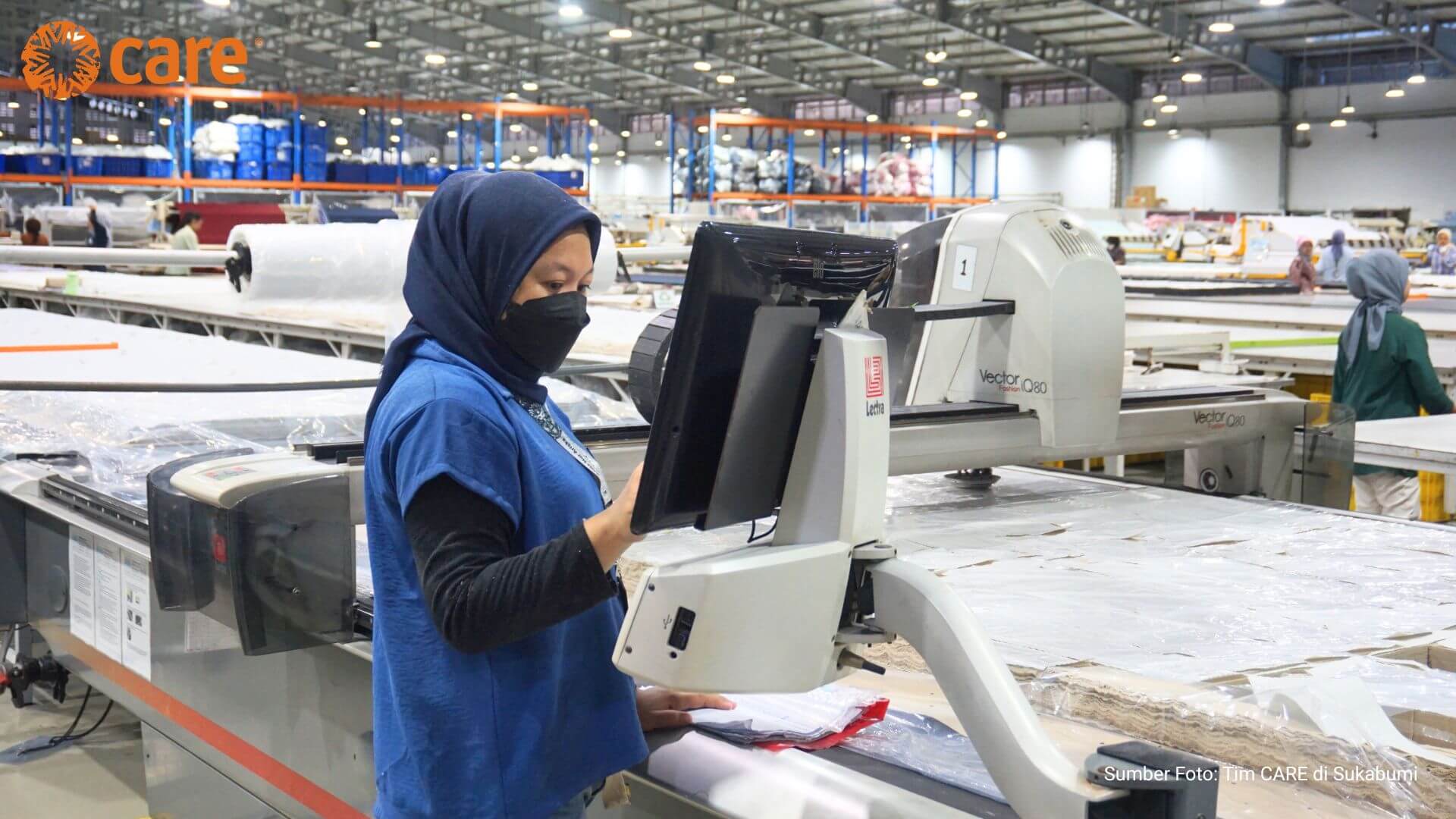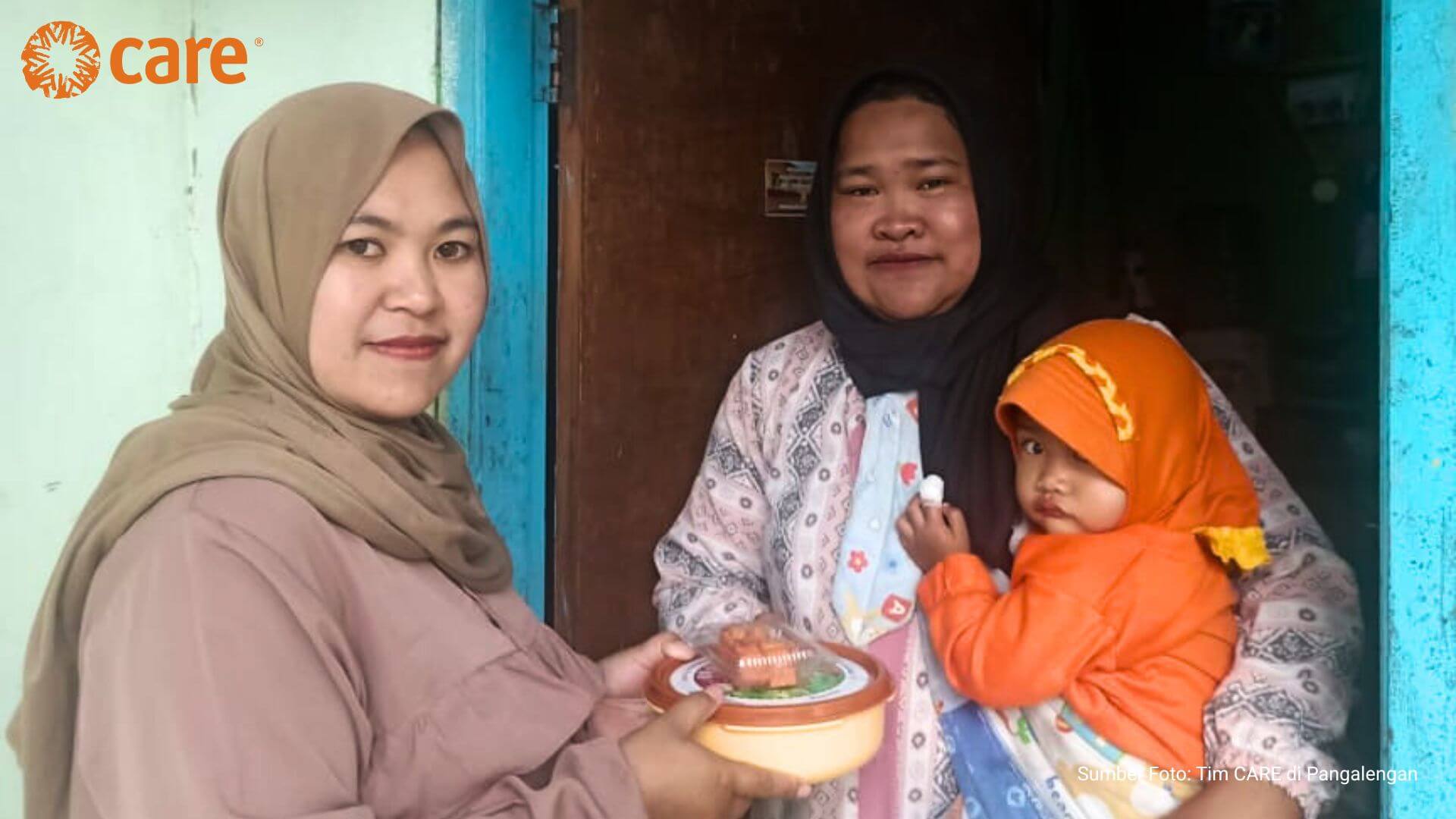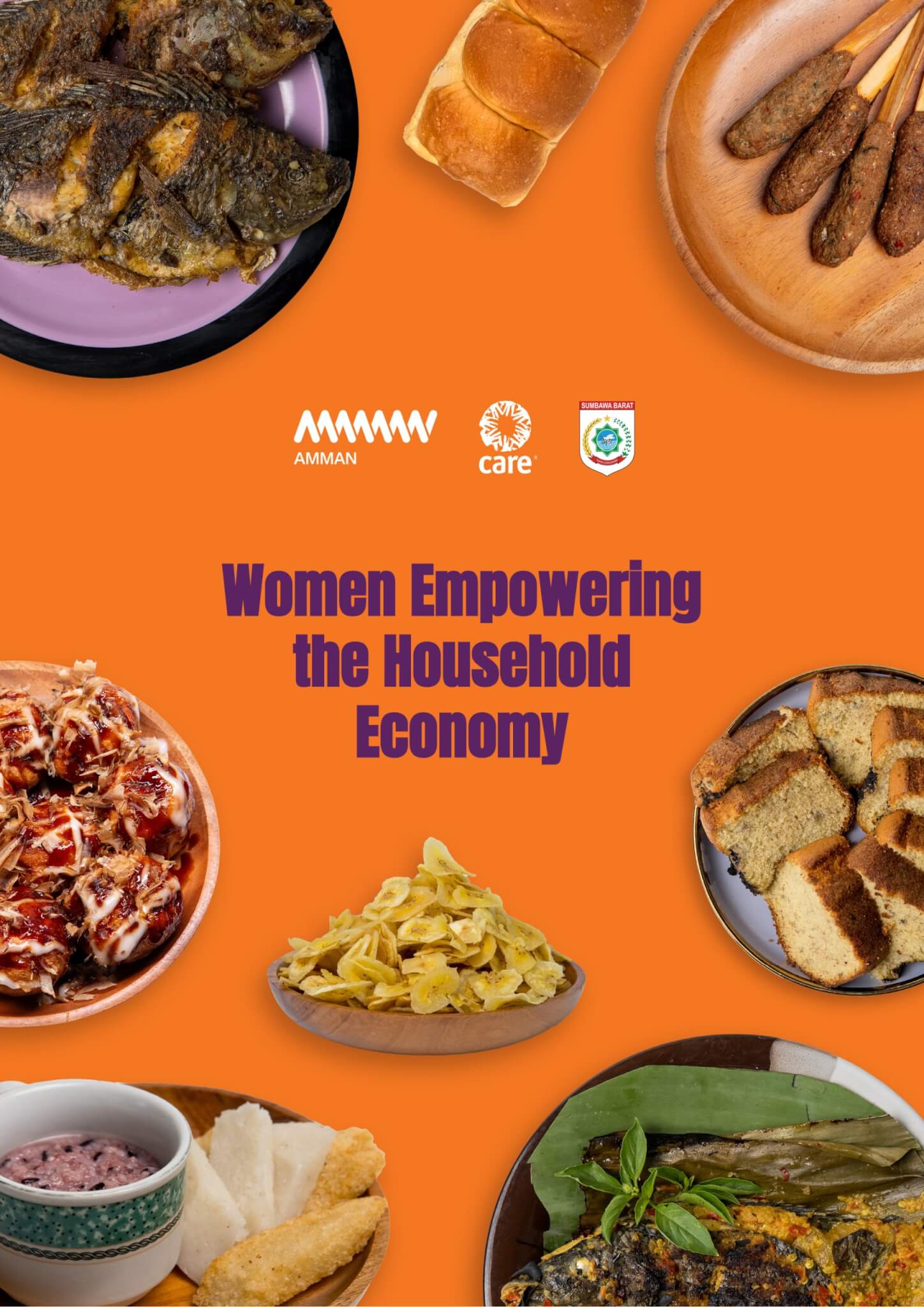Every morning, before the sky is fully lit, Nyai Sunarsih, a tea picker from Sukaluyu Village in Pangalengan Subdistrict, Bandung District, sets out for the plantation where she works. For an hour, the 51 year old woman strides nimbly across the uneven terrain of the Pasir Malang tea fields, carrying her tea picking machine and a “waring”, a large net used to collect the tea leaves she gathers.
The early mornings in Pasir Malang are dark and cold. The six kilometre route, with its steep inclines and rugged path, pushes Narsih, her nickname, to leave earlier than most workers, just to secure a decent picking block. “If I’m late, I might end up with the hardest terrain,” she says.
“I’ve been a tea picker for over ten years. I always leave at the same time even during heavy rain. If I’m late, I’ll get assigned to a difficult block, like on a slope or deep down in the lower fields,” she explained during a short break in the plantation.
A Changemaker in Her Workplace
Though she’s long worked in the fields, it was only in the past two years that Narsih felt part of a fair system. Previously, she recalls, area allocation for tea harvesting was unequal. Male workers were often given plots that were closer and easier to reach, while women were sent to more remote and difficult areas.
“Back then, we women just obeyed. If our supervisors gave us tough plots, we didn’t protest. We only confided in one another, never dared to speak up,” she said.
But everything changed after she joined the Community Development Forum (CDF), a program that facilitated by CARE Indonesia and partners, introduced her to gender equality, forum communication, and household financial management. Today, Narsih is an active member of the forum which also involve member of plantation management, village government, and field workers. Despite the diverse composition, Narsih holds her own with confidence.
“I initially joined the forum because my supervisor told me to. But I stayed as I learned so much. Through CDF, I realized that tea pickers like us deserve fair treatment, just like workers in other parts of the plantation company. And we have to speak up to get equal rights. That’s why now I’m brave enough to share my opinions with my supervisor,” she explained with a smile.
Narsih proposed a change in how land is allocated to the tea pickers. Instead of assigning it by gender, she suggested rotating plots among work groups, so that all teams get equal chances alternating between easy and difficult terrain.
“I was nervous at first, afraid the supervisor would think I was being rude or rebellious. But I knew this was for the good of all of us. So I pushed through. And to my surprise, my idea was accepted not only by my supervisor but also by other managers. They welcomed it. Now, the amount of tea I pick has increased, and so has my income and that of my fellow workers,” she said, blushing.
Before bringing her proposal forward, Narsih made sure to speak with her fellow workers and gather their feedback. Only after building a shared consensus did she speak to the supervisor. “This wasn’t just my problem it was everyone’s. That’s why I made sure we were all on the same page before I brought it up,” she explained.

A Voice That Brings Positive Change
The changes initiated by Narsih haven’t gone unnoticed. Saeful Hidayat, the supervisor at Malabar Plantation’s Pasir Malang Unit under PTPN I Regional 2 and Narsih’s direct superior, acknowledges positive impact she caused.
“I’ve seen a positive shift among the tea pickers. They used to be closed off and relied on others to speak for them. But now, they’re more confident in talking with supervisors and colleagues. I think Narsih stands out the most in that regard,” said Saeful.
He added that the workers’ newfound courage to speak up doesn’t offend him on the contrary, he welcomes it. “I’m actually glad when the workers, especially women workers are able to speak up directly to me. If there’s a problem, say, with a tea picking machine, it can be fixed swiftly. That means more tea gets picked and daily yields go up,” he explained.
According to him, this positive shift began with Narsih, who encouraged other women tea pickers to speak up too. “She’s become like a spokesperson for the workers, voicing suggestions and feedback. She’s encouraged other women to use their voices too. Maybe only a few have followed so far, but I believe this will continue to grow. More people will find the courage to speak up,” he added.
Expanding Her Role in the Community
The transformation in Narsih didn’t stop at work. She’s now active in her neighborhood too, sharing ideas such as a proposal for community-based waste management with the village youth group (Karang Taruna). Though the plan is still under discussion, she’s proud to contribute.
She also shared that her communication skills have improved. With this newfound confidence, she’s often asked to be the MC at various community events, from neighborhood religious gatherings to forum meetings and local group activities.
“I used to speak in a messy way, people couldn’t understand me. But since joining CDF, I’ve learned how to communicate more clearly and with structure. Now, gradually, I’m confident enough to be the MC at meetings. I want to keep learning, so I can keep advocating for my rights and those of other women to be treated fairly,” said Narsih.
Toward the end of the conversation, Narsih reflected on how CDF has helped her believe even more strongly in women’s right to progress. She became more confidence in her decision back then to managed her family’s finances more carefully so she could send her daughter to university, something rarely done, and often frowned upon, in her village.
“People used to think I was weird for wanting to send my daughter to college. Around here, it’s not common for girls to pursue higher education. But thank God, my daughter graduated, even though we didn’t have much. I just wanted her to have a better life than I did. And because of CDF, I know now that I made the right decision. I was not weird or crazy as they said,” she concluded, beaming.
Writer: Kukuh Akhfad
Editor: Swiny Adestika













